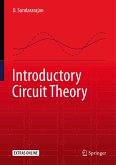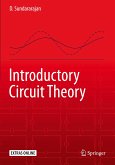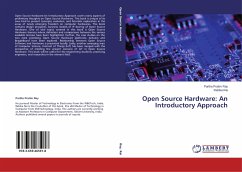Circuit analysis is the process of finding all the currents and voltages in each element of an electrical or electronic circuit. Informally, circuit analysis is also known as solving a circuit. The different components of a circuit are resistors, transistors, capacitors, inductors and diodes. Circuit analysis deals with the calculation of unknown electrical circuit quantities such as voltage, current, resistance, impedance, power, etc. There are two important circuit analysis laws also known as Kirchhoff's laws. These laws are the Kirchhoff's Current Law (KCL) and the Kirchhoff's Voltage Law (KVL). KCL is one of the fundamental laws used for circuit analysis which states that the algebraic sum of all currents entering and exiting a node must be equal to zero. KVL states that the directed sum of the potential differences (voltages) around any closed loop is zero. This book provides a comprehensive understanding to the fundamental concepts of circuit analysis. Coherent flow of topics, student-friendly language, and extensive use of examples make it an invaluable source of knowledge for all the readers.
Hinweis: Dieser Artikel kann nur an eine deutsche Lieferadresse ausgeliefert werden.
Hinweis: Dieser Artikel kann nur an eine deutsche Lieferadresse ausgeliefert werden.








